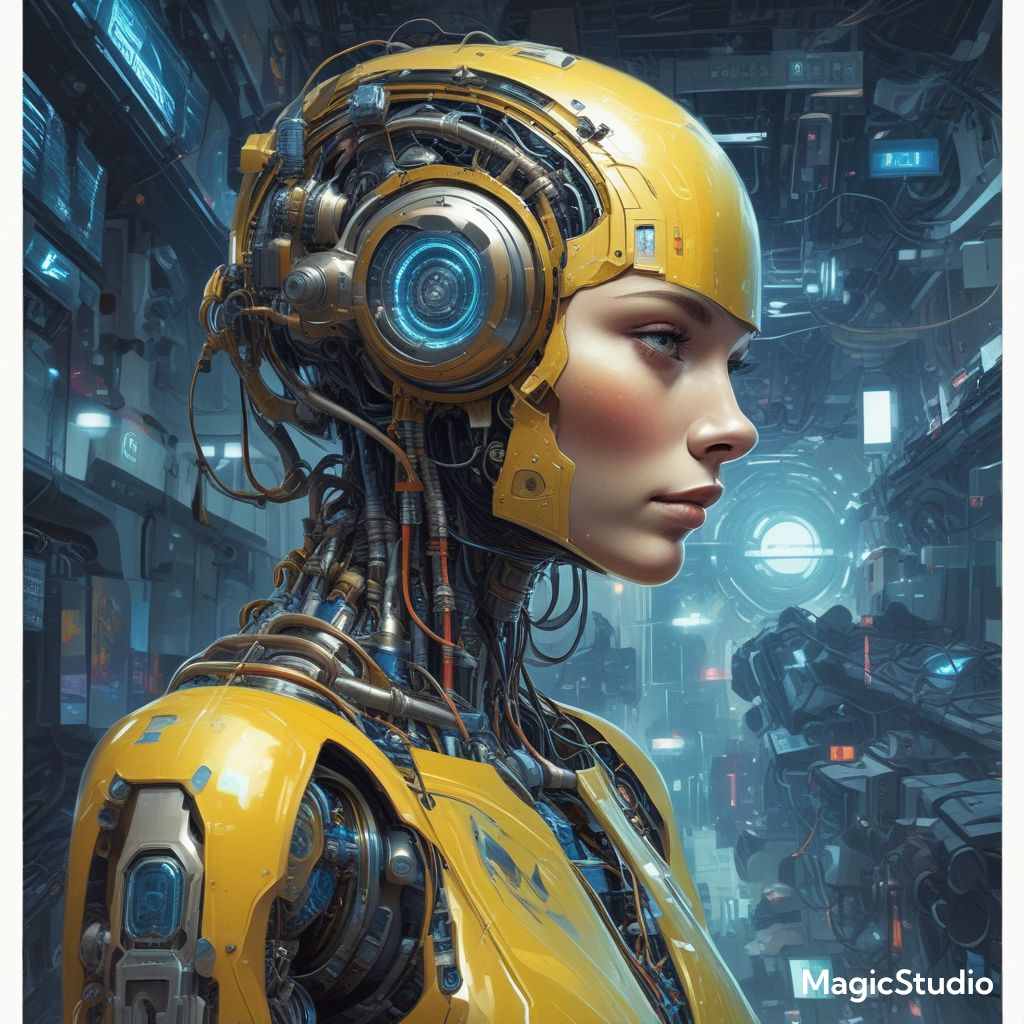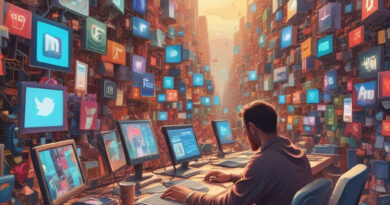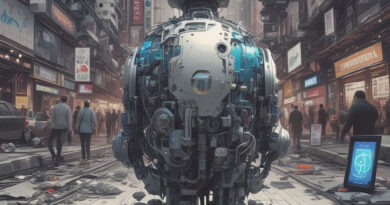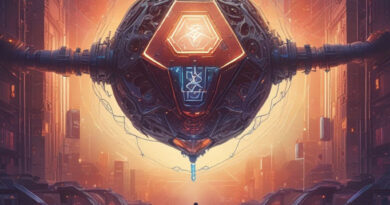The Future of Artificial Intelligence: What to Expect in 2025 and Beyond

Artificial Intelligence (AI) has been evolving rapidly, transforming industries and daily life in ways that were once thought to be science fiction. As we move towards 2025, AI’s influence is only set to grow. In this post, we’ll dive into the emerging trends in AI and explore what the future holds.
1. The Rise of AI in Everyday Life
Artificial intelligence is no longer confined to labs or high-tech companies. It is gradually becoming integrated into our daily lives, from smart assistants to AI-powered recommendation engines.
What to expect:
- Smart Homes: Expect even more sophisticated smart home systems powered by AI, from thermostats that learn your habits to AI-driven security systems that recognize faces and track movement patterns.
- Personal Assistants: AI personal assistants, like Siri, Alexa, and Google Assistant, will become more intuitive and capable of managing complex tasks, from scheduling meetings to handling your shopping list with precision.
Why it matters: AI will make daily tasks easier and more personalized. By 2025, you’ll see a deeper integration of AI into home environments, transforming how we live, work, and communicate.
2. AI in Healthcare: Revolutionizing Diagnostics and Treatment
Healthcare is one of the most promising fields for AI advancements. By 2025, AI is expected to play a key role in diagnostics, personalized medicine, and even surgery.
What to expect:
- AI Diagnostics: Machine learning algorithms will become more accurate in diagnosing diseases, from cancer to rare conditions, with the ability to analyze medical images and detect patterns that human doctors might miss.
- Personalized Treatments: AI can also analyze a person’s medical history and genetic data to suggest treatments that are tailored specifically to them, improving outcomes and reducing trial-and-error in healthcare.
Why it matters: AI in healthcare can lead to earlier diagnoses, better treatment plans, and increased efficiency in medical practices, ultimately saving lives and reducing healthcare costs.
3. AI and Autonomous Vehicles: The Road to Full Autonomy
Self-driving cars have been a buzzword for years, but by 2025, we are likely to see a significant leap towards fully autonomous vehicles.
What to expect:
- Increased Safety: AI-powered vehicles will reduce the number of accidents caused by human error, using sensors and algorithms to predict and respond to road conditions in real-time.
- Smart Traffic Systems: With AI in control of traffic flow, cities could see smoother commutes and more efficient use of roads, reducing congestion and travel time.
Why it matters: AI is paving the way for a future where transportation is not only more efficient but also safer and more sustainable.
4. The Growing Role of AI in Business Operations
In the business world, AI is already being leveraged to enhance decision-making, optimize operations, and improve customer experiences. In the coming years, AI will be central to many core business functions.
What to expect:
- Automation of Routine Tasks: From HR functions to customer service, AI will automate repetitive tasks, allowing businesses to focus on strategic goals.
- Data-Driven Decisions: AI will assist businesses in analyzing large volumes of data and providing insights that were previously difficult to uncover. Predictive analytics will help companies forecast trends and customer behavior with greater accuracy.
Why it matters: AI will allow businesses to be more efficient, cut costs, and deliver better products and services to customers by using data-driven insights.
5. AI and Ethics: Striking a Balance
As AI continues to advance, ethical concerns about privacy, bias, and decision-making will become increasingly important. It’s critical to ensure that AI is developed and used in ways that benefit society as a whole.
What to expect:
- Bias and Fairness: AI systems are only as good as the data they are trained on, and there is growing awareness of the need to reduce bias in AI algorithms to avoid perpetuating inequalities.
- Data Privacy: As AI gathers and processes more personal data, safeguarding privacy will be paramount. Regulations and ethical standards will need to evolve alongside technological advancements.
Why it matters: Ethical AI development will ensure that technology is used responsibly and equitably, reducing the risks of discrimination and protecting individual rights.
6. The Future of Work: AI as a Co-worker
While there are concerns about AI replacing jobs, the future likely involves AI working alongside humans to augment their capabilities. Instead of replacing workers, AI can assist with tasks, making work more efficient and less strenuous.
What to expect:
- AI-Powered Collaboration: In the workplace, AI will act as a collaborator rather than a replacement, helping employees complete tasks faster and more accurately.
- New Job Opportunities: As AI technology grows, so too will the demand for workers with skills in AI, machine learning, and data analysis. The future of work will likely involve human-AI collaboration.
Why it matters: AI has the potential to transform the workplace by making work more productive and creating new job opportunities in fields related to artificial intelligence.
7. AI and Creativity: The Changing Landscape of Art, Music, and Writing
AI’s role in creative fields is expanding, and by 2025, we’re likely to see more AI-generated art, music, and writing that’s indistinguishable from human creations.
What to expect:
- AI-Generated Art: AI tools are already creating stunning artwork, and this trend will continue to grow, with AI generating unique visual pieces, music, and written content.
- Personalized Content: AI can help tailor content to individual preferences, creating music playlists, articles, and even books that are customized to suit your taste.
Why it matters: The integration of AI in creative industries will unlock new possibilities for artistic expression, allowing creators to experiment with new tools and ideas.
8. The Role of AI in Cybersecurity
As cyber threats become more sophisticated, AI will play a crucial role in detecting and preventing attacks. AI algorithms will be used to identify vulnerabilities, monitor networks, and respond to threats in real-time.
What to expect:
- Predictive Security: AI will help predict cyberattacks by analyzing patterns and behaviors, allowing organizations to take proactive measures before an attack occurs.
- Automation of Threat Detection: AI will enable automated systems to detect and respond to threats faster, reducing the time it takes to neutralize potential risks.
Why it matters: As cyber threats become more advanced, AI will be vital in protecting both personal and corporate data from malicious actors.
Conclusion: Embracing the AI Revolution
AI is transforming industries, improving lives, and creating new possibilities for the future. As we move toward 2025, the potential for AI to revolutionize fields such as healthcare, transportation, business, and creativity is limitless. However, with these advancements come challenges, particularly in terms of ethics and privacy. As AI continues to evolve, it’s important to ensure that its development is responsible, ethical, and benefits everyone.



